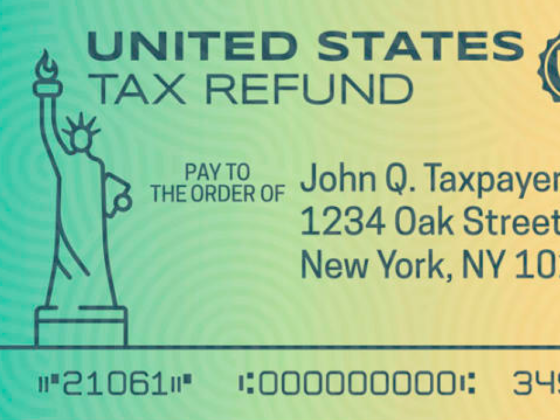It happens every summer. You book a vacation at some pricey locale—depending on your circumstances, “pricey” could mean Europe, Disney World, or perhaps an oceanfront hotel room—and you wait anxiously for your time in Paradise to arrive. Meanwhile, you make your flight reservations and buy some new clothes. You search the Internet for great restaurants and must-do activities. And when vacation time finally arrives, you jump in with utter abandon.
Vacations are important, and feeling entitled to a vacation is fine too. Most Americans lead very hectic lifestyles. We work too hard, and the vacation is a chance to break out of our hectic routine and recharge our batteries. However, I encourage you to think about your values, and your goals for this vacation. Planning ahead can make the vacation much “richer” in terms of time with family and friends, and you will not be left with the credit card “hangover” after you return.
For too many of us, financial responsibility goes out the window on vacations—it’s like we’re splurging on an excessive, indulgent meal after weeks of healthy eating. But like overeating, spending without limits can have unpleasant aftereffects and it can actually reduce our happiness.
The irony is that an event that’s supposed to be all about happiness—vacation—ends up making us unhappy. Clearly, we really don’t understand what creates happiness.
Lavish spending does not make us happy (at least not for long). Sane, smart money management—which should include vacation spending—does bring us joy. Knowing that we are financially responsible, and are on the path to financial security brings us a sense that we are in control of our money and our future, and that feels great!
As you plan your vacation, here are some tips to consider:
What is Your Goal for this Vacation?
Psychology research shows us that spending time with family and friends is one of the best ways to become happier. But spending time with family and friends does not require an expensive vacation. A long weekend at a nearby state park or renting a home through VRBO.com (with a kitchen) can lead to lots of fun and wonderful memories. Standing in long lines at a theme park in the sweltering heat does not enhance the time with family and friends.
If your goal is R&R (rest and relaxation or rest and rejuvenation), then planning a relaxing vacation with plenty of “down time” is a good approach.
 If you have young kids, they may be very happy with a great swimming pool at a hotel, but that hotel may be only 50 miles away. This avoids the expensive airfare. Or, maybe your family would enjoy hiking in the mountains or playing in a creek.
If you have young kids, they may be very happy with a great swimming pool at a hotel, but that hotel may be only 50 miles away. This avoids the expensive airfare. Or, maybe your family would enjoy hiking in the mountains or playing in a creek.
If the goal for adults is to relax and break away from the hectic routine at work, consider several long weekends instead of a long, expensive vacation. Planning and anticipating the long weekends are a big part of the fun, and being away only 4 days will make the pile on your desk when you return to work smaller than a 2 week vacation. Your boss may also appreciate you being gone only 4 days. Doing this several times during the summer can be a great way to recharge your batteries without breaking your budget.
Control the Controllables
There are many things in life we can’t control. That’s why it’s so important to pay attention to the things we can control and to be aware of their impact on our happiness. Remember, you control the process of planning your vacations. You control where you go and how much you spend. Plan a vacation that you can afford and live within your means. You’ll find that when you control the controllables, you’ll feel much more at peace—even if you’re not at a five-star resort—because you aren’t worrying about how you’re going to pay for everything!
Don’t Forget to Tally Up All of the Costs
We’ve all encountered hidden costs, fees, and taxes that come with hotel stays, plane tickets, etc. As you plan your vacation, don’t forget to take these things into account, as well as incidentals like food, gas money, sunscreen, etc. Don’t nickel and dime yourself into busting your budget!
Consider Knocking a Star Off Your Hotel
Yes, we all enjoy cushy hotels. But be honest with yourself: How long will your family really be in your room? Chances are, you’ll only be sleeping and showering there. Forgo bells and whistles so that you can feel better about spending money on daytime activities.
Pay in Cash Whenever you Can
Research has shown that we spend roughly 15 percent more when we pay with a credit card as opposed to using cash. Of course, you’ll probably have to use a card when booking airline tickets and reserving a hotel room, but once you get to your destination, plan to use cash. If you have to reach into your wallet and count out bills (hard-earned cash) in order to pay for a meal or memento, you might just decide that it isn’t worth the money after all.
Start Saving for Next Year
Once you’ve returned home from this year’s vacation, start saving for next year’s trip. (Not only will you be saving money; you’ll also be saving yourself future financial anxiety!) Cygan recommends using the Christmas club accounts used by banks in the 1960s as a model. Put a set amount into your vacation fund each week or month and make extra contributions from tax refunds, bonuses, or raises.
Involve your kids in your vacation club account by having them contribute a set amount of their allowance or birthday money. Create a colorful paper link chain, and add a link every time the fund increases by $20. The chain will become longer as the vacation gets closer. This is a great way to teach your kids the concept of saving over time for a goal—and you will become a positive financial role model.


